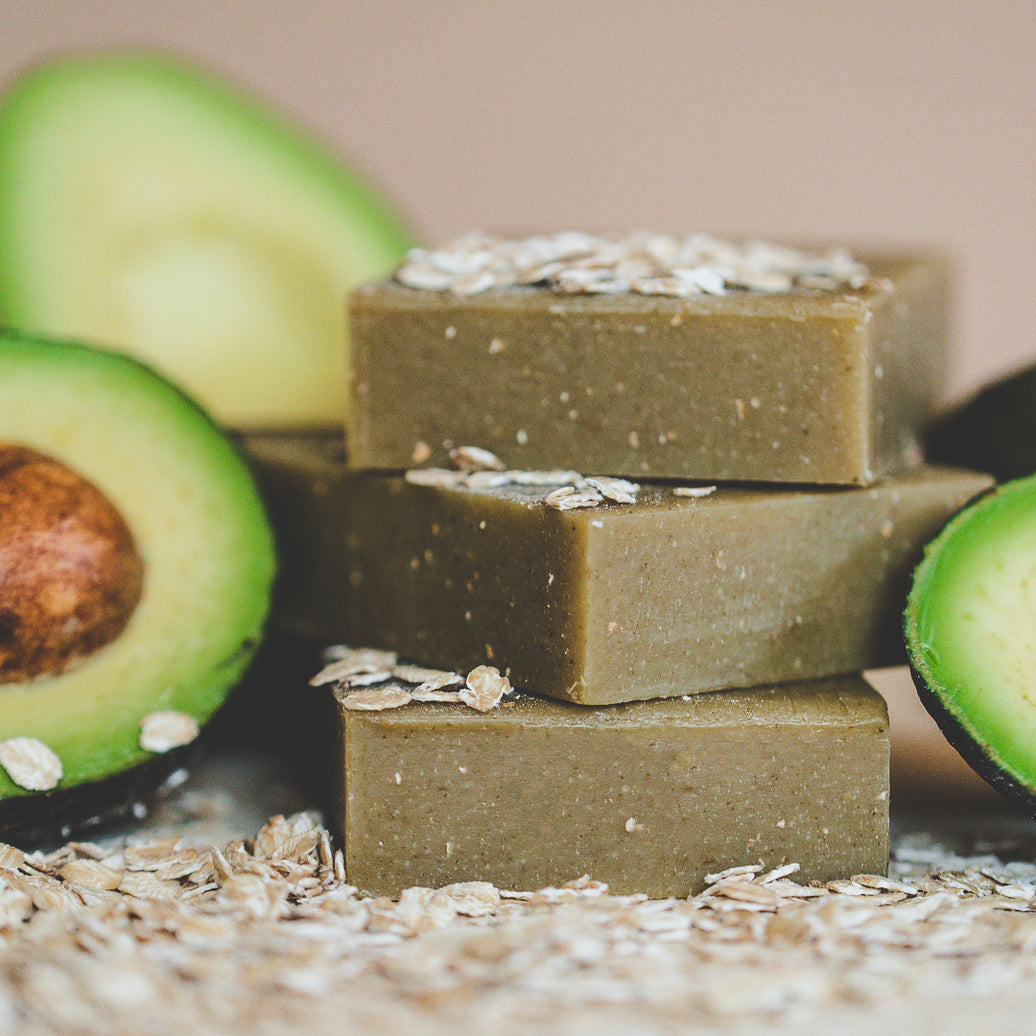
Natural Soap: Ginger Lime & Oats
- Out Of Stock
- Travel Size Bar 1.7 oz is Out Of Stock
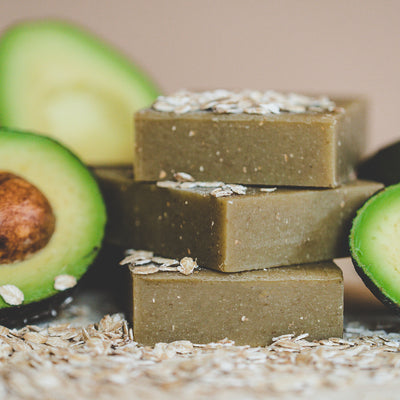

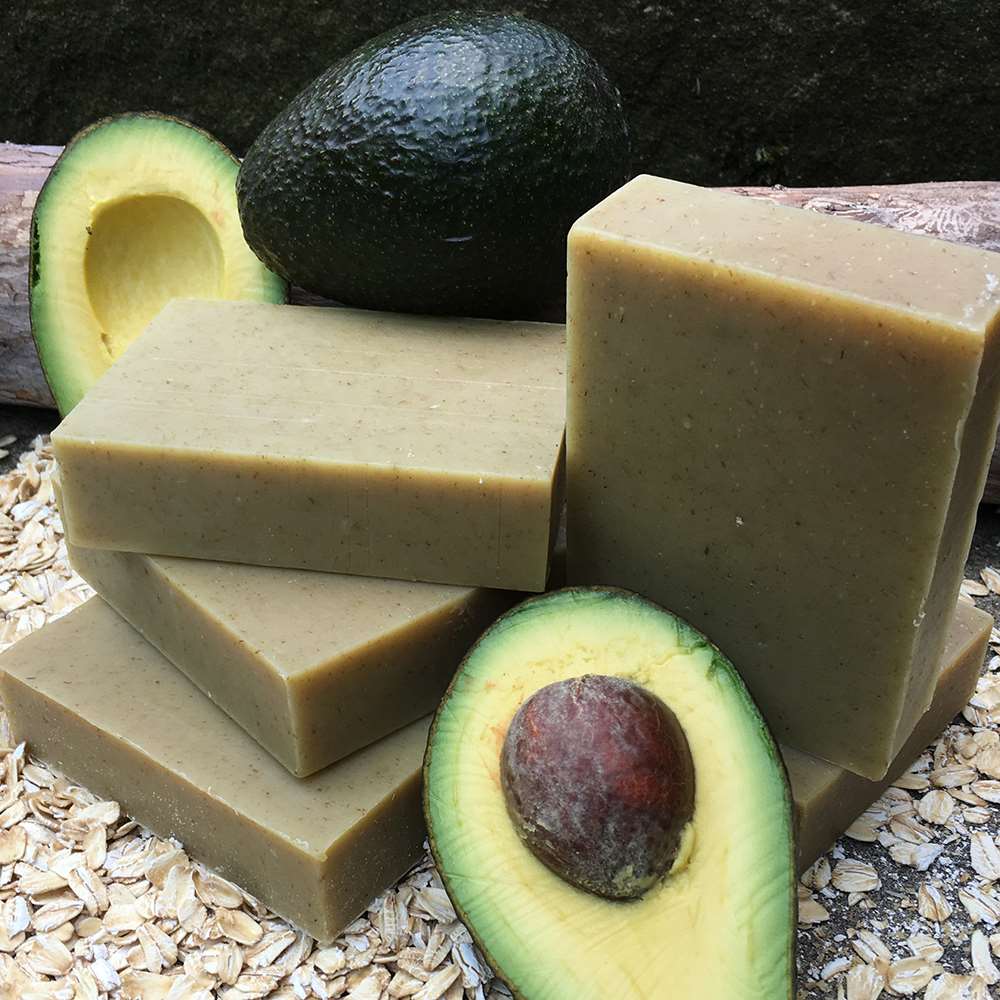
This moisturizing soap with a ginger-lime scent provides a spa experience for your entire body! The rich consistency of unrefined avocado oil blended with loads of virgin shea butter creates a creamy, skin-nourishing facial or body bar. Skin-soothing oatmeal exfoliates with a gentle touch.






Good For: All Skin Types, Gentle Exfoliation
This creamy soap is loaded with skin nourishing ingredients.
The ginger-lime essential oil blend provides clean, warm scent and refreshing scent.
Formerly known as Avocado Oatmeal
We purchase our organic oats and oat flour from Stutzman's Farms. Read more about Stutzman's Farms in the FAQs on this page.
 The purpose of soap is to combine with oil and dirt on the body, which allows water to wash it away. The method you use to cleanse your skin is really a personal preference. We thought we would share just a few examples.
The purpose of soap is to combine with oil and dirt on the body, which allows water to wash it away. The method you use to cleanse your skin is really a personal preference. We thought we would share just a few examples.
Bar Bathers rub the bar directly on their skin to create a creamy lather. Massaging the velvety lather into your skin before rinsing allows you to experience the best moisturizing properties of the soap. This is definitely the best way to use exfoliating soaps.
Hand Latherers create lather in their clean hands and use the lather to massage and wash the skin. This gentle, mild cleansing method may be good for those with sensitive skin.
 Washcloth Washers use a washcloth to lather up. Washcloths are made out of lots of different textile textures, from soft cotton to agave fibers, and can provide very gentle to intense exfoliation. Be sure washcloths are laundered and dried often.
Washcloth Washers use a washcloth to lather up. Washcloths are made out of lots of different textile textures, from soft cotton to agave fibers, and can provide very gentle to intense exfoliation. Be sure washcloths are laundered and dried often.
Puff Polishers use a mesh puff that works up a foamy, bubbly lather, even with hard water, to wash and gently exfoliate the skin. Poofs make natural soap last longer but can harbor bacteria, so rinse thoroughly after use and replace every few weeks or clean per manufacturer's instructions.
Loofah Latherers love their loofahs that exfoliate and help increase circulation. Whole loofahs can be breeding grounds for bacteria, so be sure they dry out properly after use and replace them every two months. If you would like something less abrasive, check out our Bath & Body Accessories.
Soap Sackers place their soap into a nylon soap bag. The fibers have a smooth texture for gentle cleansing. Soap sacks can be used for whole bars of soap or scraps that would normally be thrown away.
There is a large variety of bathing accessories available. If using any accessory, never share them with others and replace or clean them often.

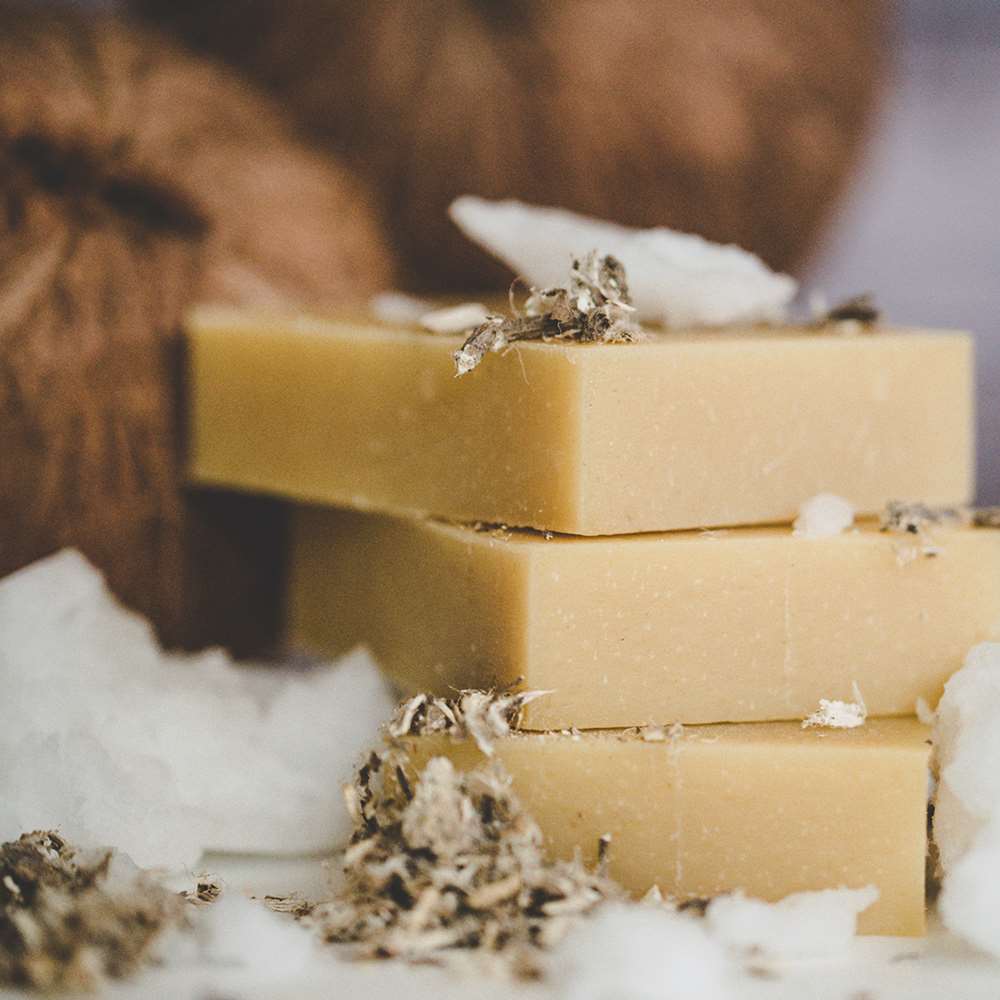
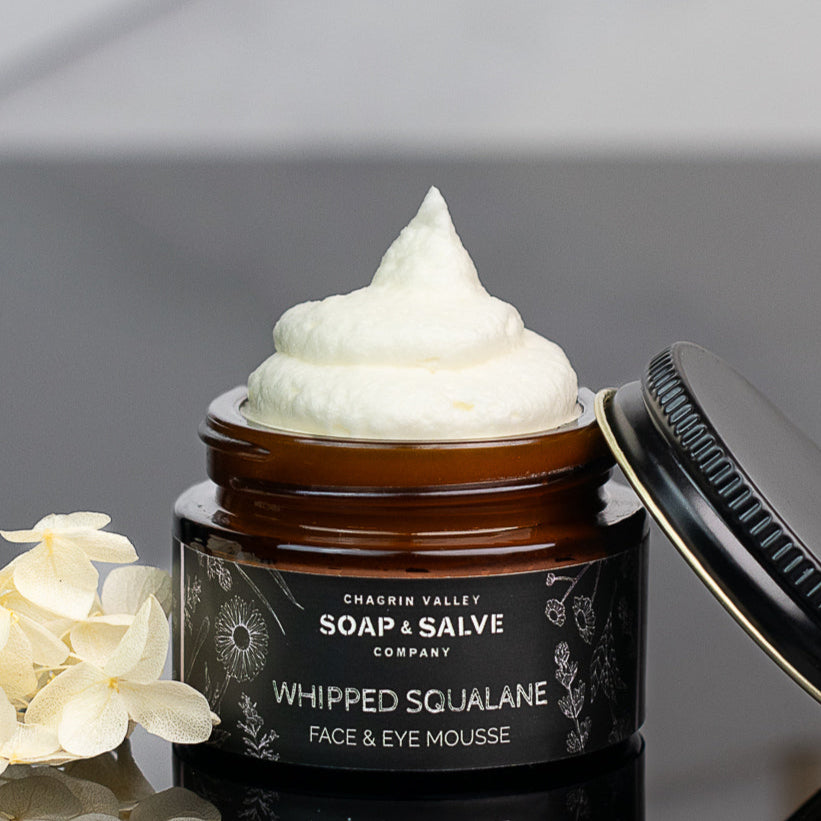
Total price: $42.40
Create Your Own Bundle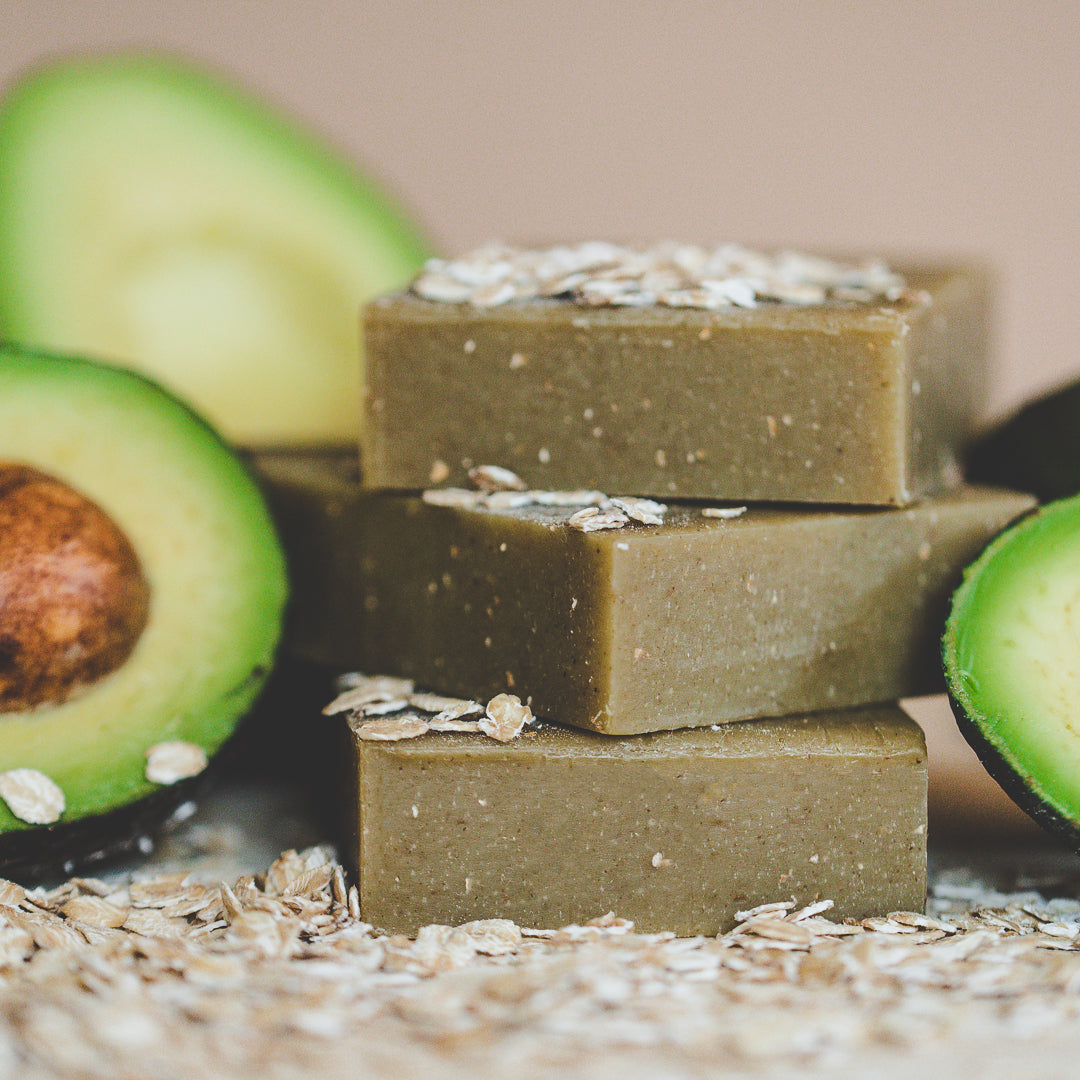
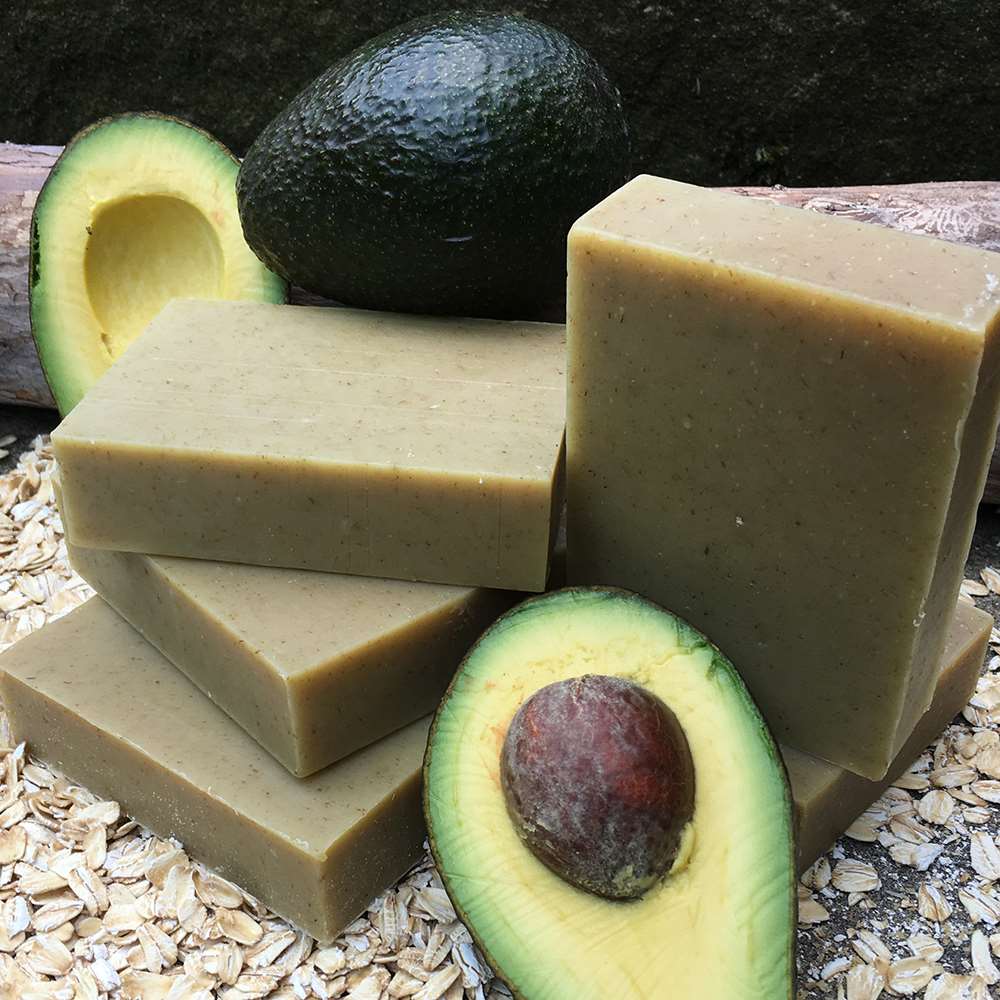
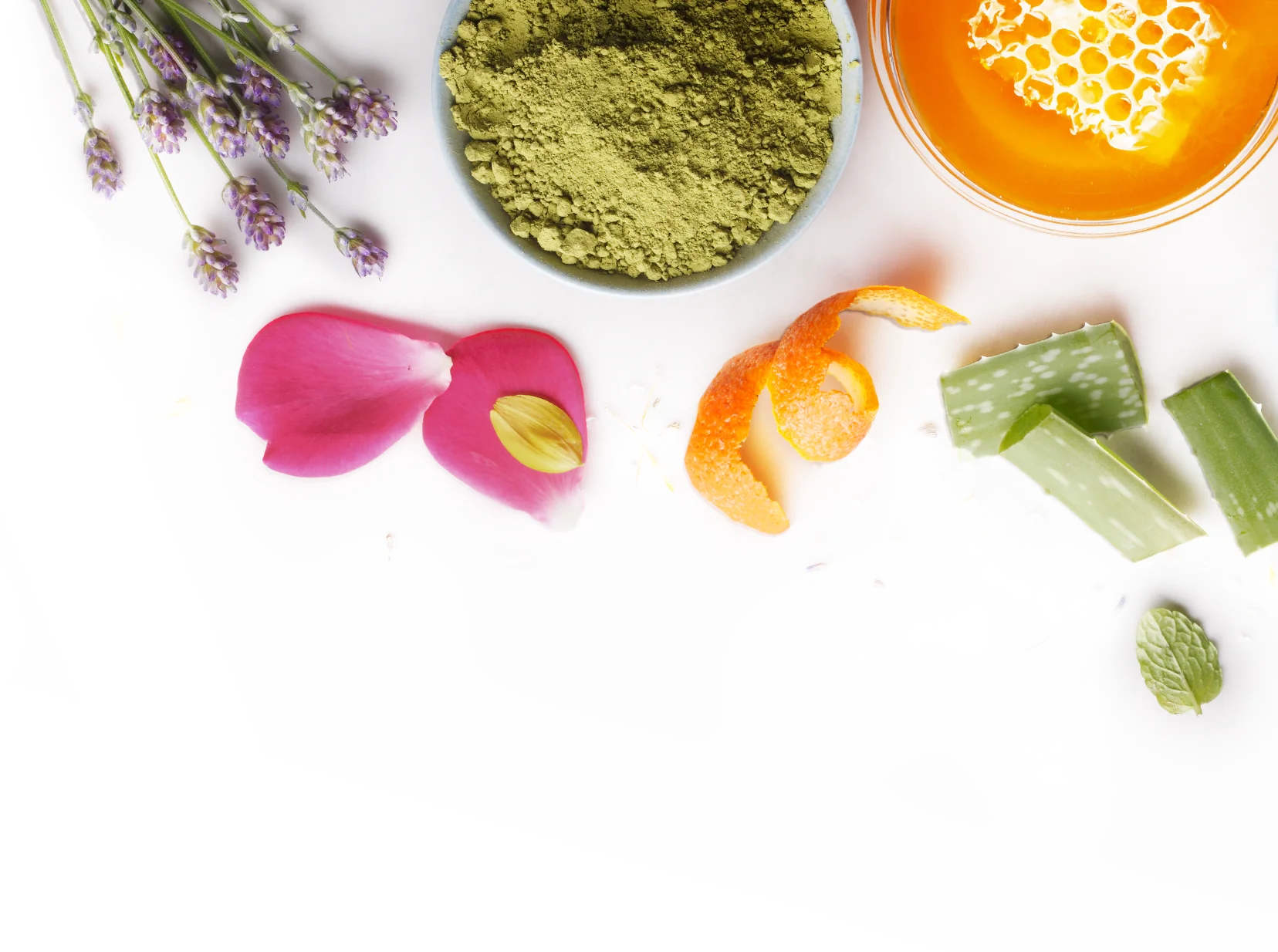
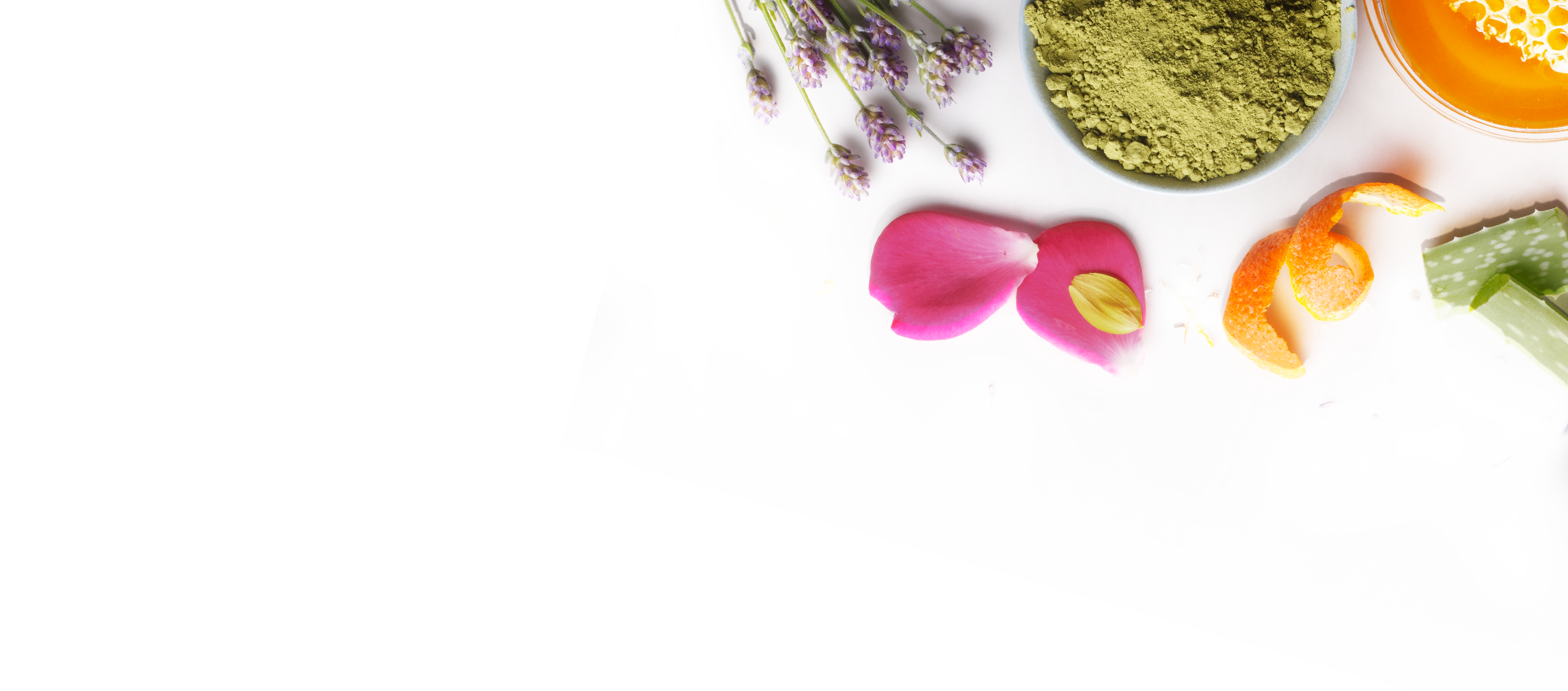
The goal is simple: to Harness the Power & Simplicity of Nature® to cleanse, soothe, heal, and protect your skin and hair!
Our unique formulas rely on moisturizing oils and butters, healing botanicals, and pure essential oils. We choose every ingredient with one end-result in mind….the BEST possible natural skin care for YOU!
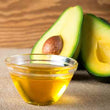
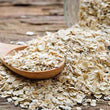
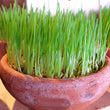
|
*Ingredient is Fair Trade Certified ^Used in the saponification process to turn oil into soap and glycerin. None remains in the finished product.
Made with Organic Avocado Oil, Wheatgrass & Oats
|
 Saying a soap is "handmade" says nothing about quality of the ingredients or the knowledge and skill of the soapmaker!
Saying a soap is "handmade" says nothing about quality of the ingredients or the knowledge and skill of the soapmaker!
Chagrin Valley is not just another soap and skincare company. We are committed to healthy skin, healthy people and a healthy planet.
We are a USDA Certified Organic Company specializing in luxurious, organic, handmade natural soaps and shampoo bars rich in natural glycerin for healthier skin and hair.
It's all about the ingredients! Inspired by our love of nature, we use organic herbs, seeds, flowers, vegetables, fragrant spices, fruits, pure essential oils and purifying clays for their exceptional skincare benefits and to provide natural color, aromatherapy, texture, or gentle exfoliation. Nothing artificial, nothing synthetic, no GMO’s, just natural wholesome ingredients.
Our soap making process uses only natural and organic ingredients. Why add artificial ingredients to a handmade product?

"Are All Handmade Soaps The Same?"
"12 Reasons to Use Natural Soap"
I have been using only natural soap on my face and body for over 20 years. It is the first product I learned to make.

My skin has become so accustomed to the benefits of these lovely bars, that everything else makes my skin itch.
Our soap bars travel with me everywhere I go. I even keep one-time-use scraps in my purse to use in public restrooms!
While I believe that many of the "reasons" listed below may apply to some natural handmade soap companies, I will focus on the one company with which I have intimate knowledge and experience--CHAGRIN VALLEY.
Most of the soap you purchase today is a commercially manufactured chemical cocktail of ingredients. It is not natural and is not even really “soap.” They are nothing more than detergents in disguise.
Here is what the FDA has to say:
“Today there are very few true soaps on the market. Most body cleansers, both liquid and solid, are actually synthetic detergent products. Detergent cleansers are popular because they make suds easily in water and don't form gummy deposits. Some of these detergent products are actually marketed as "soap" but are not true soap according to the regulatory definition of the word.” Source
The very best reason to use natural soap is the ingredients. A product is only as good as the ingredients used to make it.
OUR skin-nourishing ingredients are USDA Certified Organic, sustainably produced, cruelty-free, and ethically traded.
Harnessing the Power of Nature we make each soap bar unique by adding a variety of organic butters, purifying natural clays, organic herbs, seeds, grains, spices, flowers, vegetables, fruits, chocolate, and pure botanical essential oils to provide natural color, aromatherapy, texture, and gentle exfoliation.
Our soap bars contain only the ingredients that they need—no extra preservatives that liquid body washes or commercial bar "soaps" require to increase their shelf life to years, and no foam boosters to make them lather.

Sadly many people have the misguided perception that all bar soaps will dry your skin. The problem is that most commercial bar “soaps” are detergents and not real soap.
So why are natural soaps so moisturizing? Of course, it's the ingredients! Natural soap made of pure ingredients derived directly from nature is a rare find these days. Here are a few other reasons.
Superfatting
Superfatting is the process of adding extra fats (oils or butters) when formulating a soap recipe so there is more fat in the mixture than the lye can react with during the chemical reaction. This process creates a more hydrating bar with superior moisturizing and emollient qualities.
Our soap bars are formulated with lots of extra plant oils and butters. We superfat our bars at a higher rate than most soapmakers.
Natural Glycerin
Glycerin is not added to a natural handmade soap recipe – it is created during the natural soap making process called saponification. Once saponification is complete, the ingredients have combined and chemically changed into soap, glycerin, and a bit of water.
Glycerin, a precious and gentle emollient, is a humectant that draws moisture from the air to the skin creating a moisturizing protective layer.
Commercial soap manufacturers remove the glycerin from their soaps because excess glycerin decreases the shelf-life of soap and they can sell the glycerin or use it in products that command a higher price like the lotion.
Think about it! Commercial soap companies remove the moisturizing ingredient (the glycerin) which in turn creates a soap that dries your skin and then they use the glycerin they removed to sell you a skin-moisturizing lotion. Quite an ingenious profit-making strategy!
Thus skin-nourishing ingredients, plus superfatting and natural saponification create a soap bar full of moisturizing, natural oils, and natural glycerin.
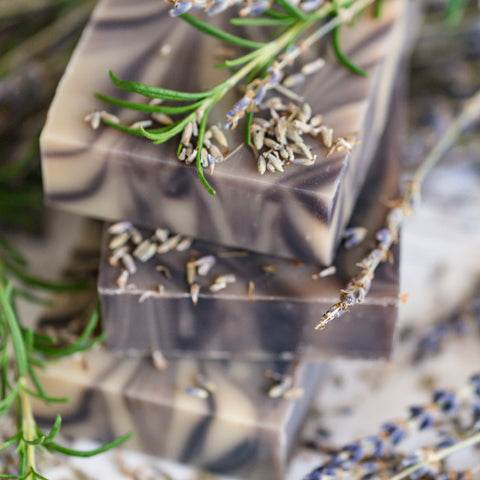
Our scented natural soaps are made with pure essential oils, not fragrance oils, and offer aromatherapeutic benefits.
Fragrance oils, whether artificially created or derived from natural components, may duplicate the smell of a flower or herb, but they do not offer the therapeutic advantages of essential oils.
Furthermore, the generic term, “fragrance” or “parfum” on a label can indicate the presence of up to 3,000 separate ingredients and the FDA does not require companies to disclose what is in a “fragrance,” because it is considered a “trade secret.”
BLOG: Why We Use Only Real Plant Essential Oils
The body’s largest organ, our skin, is incredibly porous and absorbent. How we treat our skin can have a major impact on our overall health as well as the look and feel of our skin.
Everyone wants healthy skin and our skin is not a fan of synthetic chemicals. I cannot count how many times customers have told us that our natural soap has not only helped improve their skin but has improved their lives by relieving itchiness and dryness, and easing irritated skin conditions such as eczema and acne.
People absolutely love bubbly lather. The foam, bubbles, and lather we know and love from commercial liquid and bar soaps are produced by surfactants--synthetic foam boosters, lathering agents, and detergents.
A properly formulated and cured bar of natural soap needs no synthetic additives to create a lather or to clean because natural soap is a natural surfactant. So it not only makes great bubbles and lather, but it also helps clean oily dirt from your skin--naturally!
BLOG: "How Does Natural Soap Create Lather?"
Some consumers are put off by the cost of handmade soap. You probably look at a bar of natural soap and wonder why it costs more. I mean, soap is soap, right? Both bars clean your skin, right?
While I may agree that both bars clean the skin, the similarity goes no further. Simply put, commercial soaps contain synthetic ingredients that are very cheap to produce in a lab.
If you use a liquid body wash the main ingredient is water. You pay for water. A properly cured soap bar has very little water remaining, meaning you are getting exactly what you pay for.
I believe that old saying, "You get what you pay for," rings true when comparing a handmade bar of a natural soap to a commercial brand!
BLOG: "The True Cost of Commercial Soap"
It may seem odd that a product we use to keep our bodies clean is doing quite the opposite for our environment.
If you are not using a natural soap, as you take a bath or shower you coat your skin with synthetic compounds like fragrances, dyes, preservatives, and detergents. These synthetic ingredients wash down our drains into our septic fields or water treatment facilities. Now imagine the millions of people who use these soaps each day.
Also, if you use a liquid body wash, how many plastic bottles and pumps do you dispose of in a single year?

I make handmade natural soap. I did not invent anything new.
But what I know is that our natural soap is made in small batches by people who have a passion as well as a mission for making natural products.
For me, soapmaking is a synergy of science and art that took years to perfect. It is a labor of love. I take the time to create wholesome soap recipes that do not sacrifice beauty or scent while incorporating amazing natural and organic ingredients.
While I am sure there are some large commercial soap companies with a social conscience, natural soapmakers tend to have the utmost respect for the earth and all its creatures.
Environmental stewardship is not a buzzword for us. It is not a talking point, not a political stance nor is it about optics!
At Chagrin Valley it is our practice to use raw materials that are sourced in an environmentally and ethically responsible manner.
Dedication to a kinder and gentler way of living is a big part of why we do what we do.
 If you are holding this soap in your hand, I probably don't need to convince you that shopping small business is important. Your purchase really does make a difference.
If you are holding this soap in your hand, I probably don't need to convince you that shopping small business is important. Your purchase really does make a difference.
When you buy a handmade bar of natural soap, you are supporting a small business that truly cares about and believes in the products they make.
Small businesses are run by people - not by boards or stockholders. They are often entrepreneurs who bring a creative freshness into an otherwise regimented world.
We do it all ourselves--from start to finish--from our hands to your hands--from our family to yours! Thank you!
Before I conclude I would like to add one final reason to the question of "Why You Should Switch To Natural Soap Bars."
From its composition to its benefits for the skin and health, to its impact on the environment, natural soap is very different from commercial liquid “soap,” bar “soap,” or syndet bars.

Regular handwashing is one of the best ways to remove germs, avoid getting sick, and prevent the spread of germs to others.
The CDC (Centers for Disease Control and Prevention) says that for good hand hygiene all you need is plain soap and water.
Clean hands can stop germs from spreading from one person to another and throughout an entire community.
Five simple and effective steps can help reduce the spread of illness so you, your family, your friends and the general public can stay healthy.
CDC recommends cleaning hands in a specific way to avoid getting sick and spreading germs to others. The guidance for effective hand washing was developed based on data from a number of studies.
1. Wet your hands with clean, warm running water and apply soap.
2. Lather your hands by rubbing them together with the soap.
3. Scrub your hands for at least 20 seconds.
4. Rinse your hands well under clean, running water.
5. Dry your hands using a clean towel or air dry them.
To date, studies have shown that there is no added health benefit for consumers (this does not include professionals in the healthcare setting) using soaps containing antibacterial ingredients compared with using plain soap.
Information is taken from the CDC.gov website
Read our blog "Simple Soap Can Help Decrease the Spread Of Viruses"
Stutzman Farms focuses on local and organic farming, as well as an on-site mill.
They do not bleach their flours or oats and do not use bromate or preservatives. They have many customers who follow a gluten-free diet and use their sprouted rolled oat and spelt flour. He has an amazing device called a ‘puffer’ which he uses to puff rice and corn that they then sweeten and sell all over Ohio.
Monroe's brother Arlie runs "Ice Shanty Cheese" and makes cheese from 100% grass-fed cow’s milk.
At Chagrin Valley Soap we believe in the power of small businesses and know they are the engine that drives our country. Small business owners and employees have expertise in their industry, passion for the products they manufacture and sell, value their customers and take a special pride in their trade.
 How long a natural soap bar will last depends on:
How long a natural soap bar will last depends on:
For one person showering every day, a well-drained bar should last for about one month.
Natural soaps are normally softer than commercial soaps because they retain their natural glycerin (which is removed in commercial soap production) and contain no artificial hardening chemicals, synthetic waxes or free alkali.
We also superfat our soaps (add extra oils or butters) and use "softer" oils so that Chagrin Valley natural soaps are more emollient and leave skin feeling moisturized.
Different oils impart different qualities to soap. Some add lathering qualities, some moisturizing, some hardness, and so on. Compared to other natural bars, we use a larger percentage of extra moisturizing and conditioning oils in our soaps and shampoo bars. These oils produce a bar that may not be as hard as bars with less conditioning oils.
How you use the bar will also affect its lifespan. For example, do you use a washcloth, an exfoliating accessory, or only the bar? Although exfoliating loofahs and sponges are great they will use up the soap much faster than a washcloth or the "only the bar" purists.
Our Natural Soap Will Last A Long Time With Proper Care
Cute Story: A customer called to say she loved our soaps but could not buy them anymore because they did not last as long as other soaps. A week later she called to place an order and apologize. Her husband, who would NEVER use her natural soaps before, fell in love with her new Juniper soap . . . and he showered twice a day!
To maximize the life of your soap, keep it in a well-drained soap dish so it can dry between uses.
We sell a handcrafted solid white oak soap dish. The deep ridges are perfect for keeping your all natural handcrafted soap dry between uses. White Oak is the wood used in shipbuilding.
A tip passed on by one of our customers whose kids always leave the soap in a water puddle: cut the large bars in halves. Then alternate the halves, allowing a longer drying time between uses.
We sometimes receive emails that go like this:
The good news is that when you purchase natural soap from an organic skincare company, it is scented with only pure essential oils.
The bad news is that when you purchase natural soap from an organic skincare company, it is scented with only pure essential oil.
The scent of an essential in any totally natural product can and will change over time and from batch to batch.
Essential oils come from nature. The quality and scent of essential oils are affected by yearly weather conditions and varies from crop to crop and region to region.
This makes it very difficult to produce finished products in which the scents are always exactly the same.
Most commercial soaps (and skincare products), even some of the "natural" ones that contain some essential oils, are made with at least some synthetic fragrances oils, nature identical oil, or natural fragrance oil. Using any synthetic fragrance ensures a more consistent scent.
Essential oils are temperamental to work under any circumstance. But while a natural essential oil scent blend may change a bit in a cream or oil, these blends are especially unpredictable when making cold processed natural soap.
After all my years of soap making in never ceases to amaze me just how much the actual soap making process changes the scent of an essential oil blend.

Natural Soap and Essential Oils
Why We Use Only Real Plant Essential Oils?
Natural Fragrance Oil? . . . Really?
Why Are Synthetic Fragrance Oils So Popular?
NO! Adding antibacterial chemicals to soap does not keep your family safe from germs.
I understand why folks (especially those with children) are choosing products labeled “Antibacterial,” hoping to keep their family safe in the war against germs.
According to Janet Woodcock, M.D., director of the FDA’s Center for Drug Evaluation and Research (CDER).
"Consumers may think antibacterial washes are more effective at preventing the spread of germs, but we have no scientific evidence that they are any better than plain soap and water.
In fact, some data suggests that antibacterial ingredients may do more harm than good over the long-term.”
Simply washing your hands with old-fashioned natural soap and water rids your skin of most fungi, bacteria, and viruses. Soap does not kill germs, it surrounds them and carries them away.
Please read our blog: Antibacterials: More Harm Than Good!
Yes And No!
Although handmade natural soaps usually get better with age, we recommend using our soaps within 12 months of purchase. Our scented soaps should be used within 3 months after removing them from the box.
Although the soaps will not be "spoiled" after that time, you may notice some changes as natural soap ages.
The changes in color and scent happen even more quickly in our sample size bars.
These small natural soap bars have a much greater surface area to volume ratio which allows essential oils to evaporate from the surface more quickly. However, the scent may still be there when you lather up.
I have found some ancient bars hiding in my closet that years old. The scents were gone, but the lather was incredible!
For a more detailed discussion please read our blog, "The Shelf Life, Color & Scent of an All Natural Soap."
Chagrin Valley Natural Soaps Are Made Using Natural & Organic Ingredients and Are Biodegradable!
By definition, biodegradable means capable of being broken down by the action of living things, like natural bacteria, into simple substances that are not harmful to the environment.
 There are many soap makers out there with good intentions who are claiming that their biodegradable soap or shampoo is safe to use in rivers and streams.
There are many soap makers out there with good intentions who are claiming that their biodegradable soap or shampoo is safe to use in rivers and streams.
Bringing a natural biodegradable soap on your multi-day backpacking trip is a great way to keep yourself feeling refreshed. But, even biodegradable soap can eventually pollute lakes and streams if it is not used properly.
The bacteria that break down natural soap are present mostly in the soil.
That means that even with biodegradable ingredients, you want to use this soap bar away from freshwater sources like lakes, rivers, and streams.
So, please, do not bath, wash your face, or do your dishes, even with biodegradable soap, in any river, lake, or stream.
Some suggestions
Absolutely! Commercial soaps, body washes, shampoos, and dish soap contain synthetic ingredients. Many of these ingredients include artificial colors and scents, detergents, and chemical preservatives, such as parabens, phthalates, and petrochemicals. These chemicals do not break down quickly.
Traces of these chemicals will remain in nature for many, many years and can have a potential negative impact on plants and animals.
A biodegradable natural soap is made with natural, organic ingredients that break down efficiently when exposed to the bacteria found in the soil.
There’s no substitute for nature. Together we can protect it from impacts like overuse, trash, and harming endangered wildlife by following the principles of "Leave No Trace."
The "certified organic" labeling has been developed by the USDA and refers to organic claims and labeling on food and personal care products in the United States. The USDA has very strict guidelines for the percentage of organic ingredients necessary to receive organic certification. Other countries have their own certification procedures, requirements, and standards. Labeling criteria and allowable ingredients differ from those in the US.
 The USDA Organic Logo Label can be used on products that meet the standards of the first two tiers of the organic labeling system in which 95 - 100% of the ingredients are certified organic.
The USDA Organic Logo Label can be used on products that meet the standards of the first two tiers of the organic labeling system in which 95 - 100% of the ingredients are certified organic.
Most of our non-soap products fall into this category and display the USDA logo!
 The Certified Organic by OEFFA label is used in our company for two reasons . . .
The Certified Organic by OEFFA label is used in our company for two reasons . . .
Soaps and Shampoos: These products contain at least 8% of the sodium hydroxide due to the process of soapmaking. Our "organic" soap is about 87% to 92% organic, but the USDA standard states that a product must be made of 95-100% organic ingredients in order to bear the USDA Certified Organic seal shown above. We are also not allowed to use the words "organic soap" on the label.
Wildharvested Ingredients: When using any agricultural ingredient (any ingredient that has a biological origin) that is not certified organic the same labeling rules we use for soap apply.
The USDA rules for proper labeling state that the products may display the certifying agent's logo but not the USDA organic logo. Our USDA certifying agency is OEFFA (The Ohio Ecological Food and Farm Association). Their logo is displayed on our "organic" soaps and shampoos.
Why do some soap companies use the word "organic" on their labels--even though it is against the rules? Click Here to Read More about Rules for Organic Labeling of Soap!
We sometimes use an unofficial symbol for products made with "natural" ingredients that do not meet the criteria for either label above. You may see this type of symbol on products, like the Dead Sea Black Clay, Bamboo Charcoal, and Loofah Pumice Foot Soaps and our Mud & Clay and Rosemary Mint Charcoal Shampoo Bars.
Organic certification is based on organic farming and agriculture standards. As a result, the list of allowable non-agricultural ingredients (like clay, salt, mud etc) is based on raw materials used in agriculture or food production. Unfortunately, ingredients like some Clays, Pumice, Dead Sea Mud and Bamboo Charcoal are not used in farming or food production and thus do not appear on the list.
Although it may seem long, this is really a very brief description. For more detailed information please read, "What Do All Of The Organic Labels Mean?"
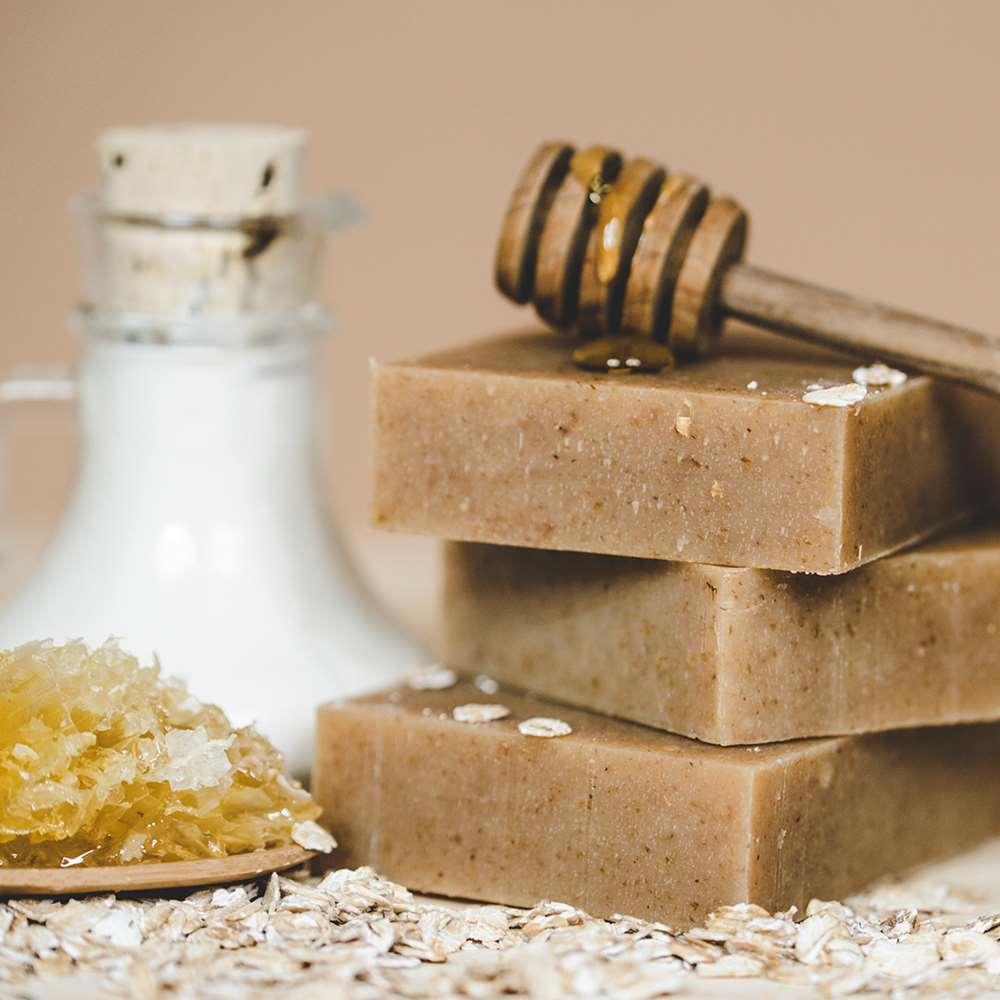
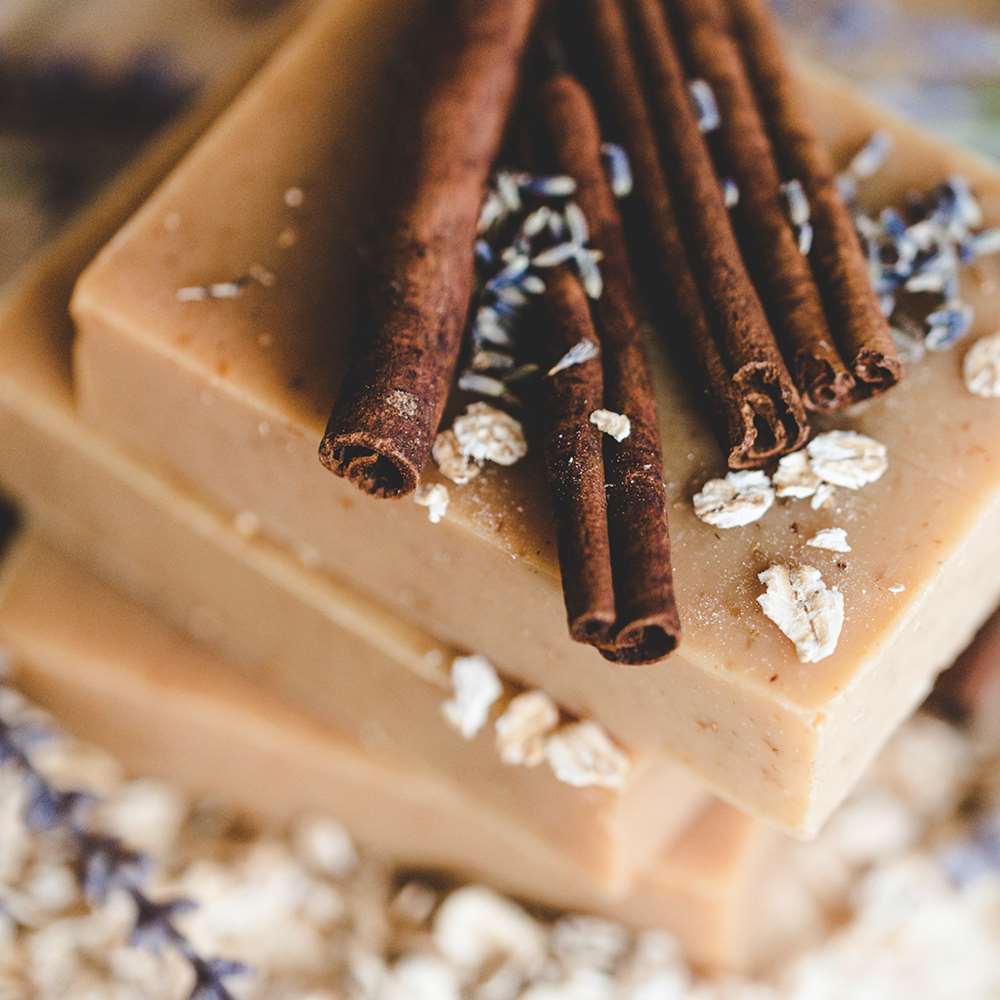
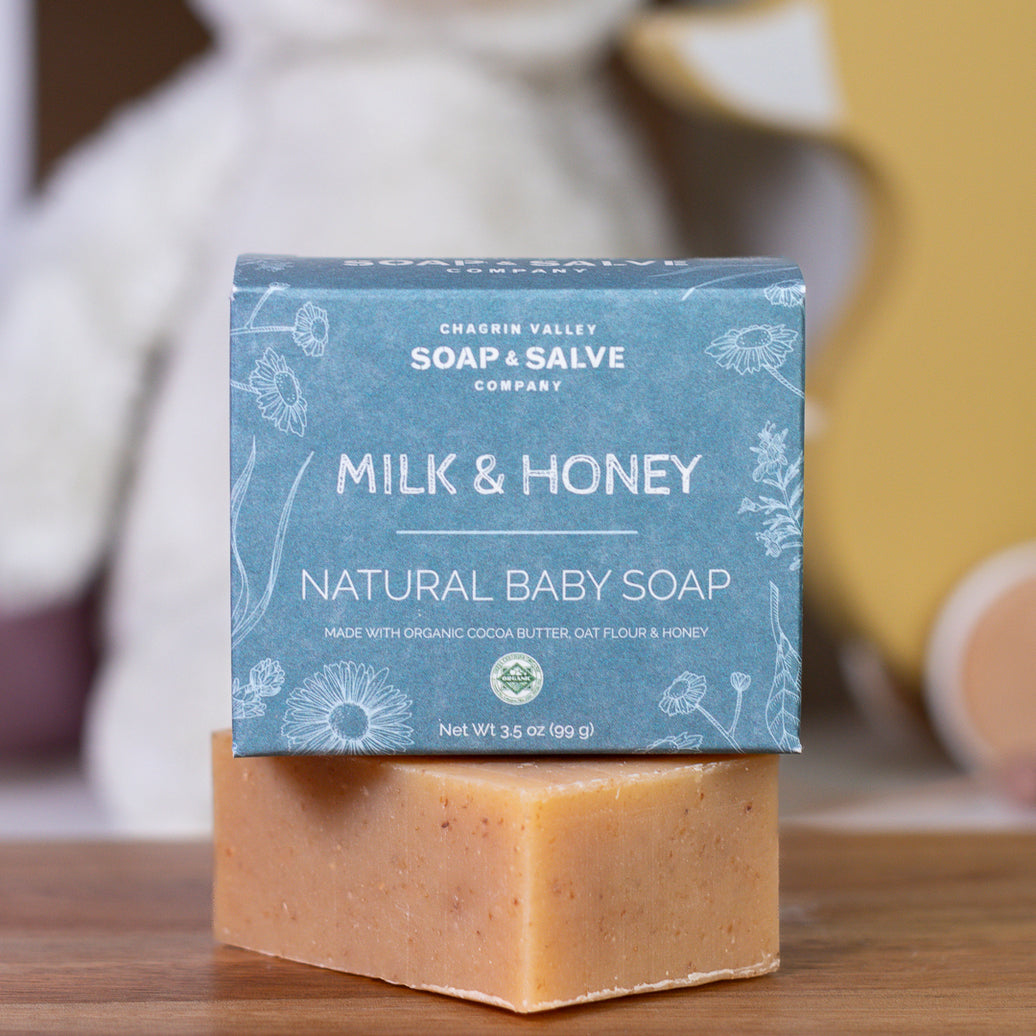
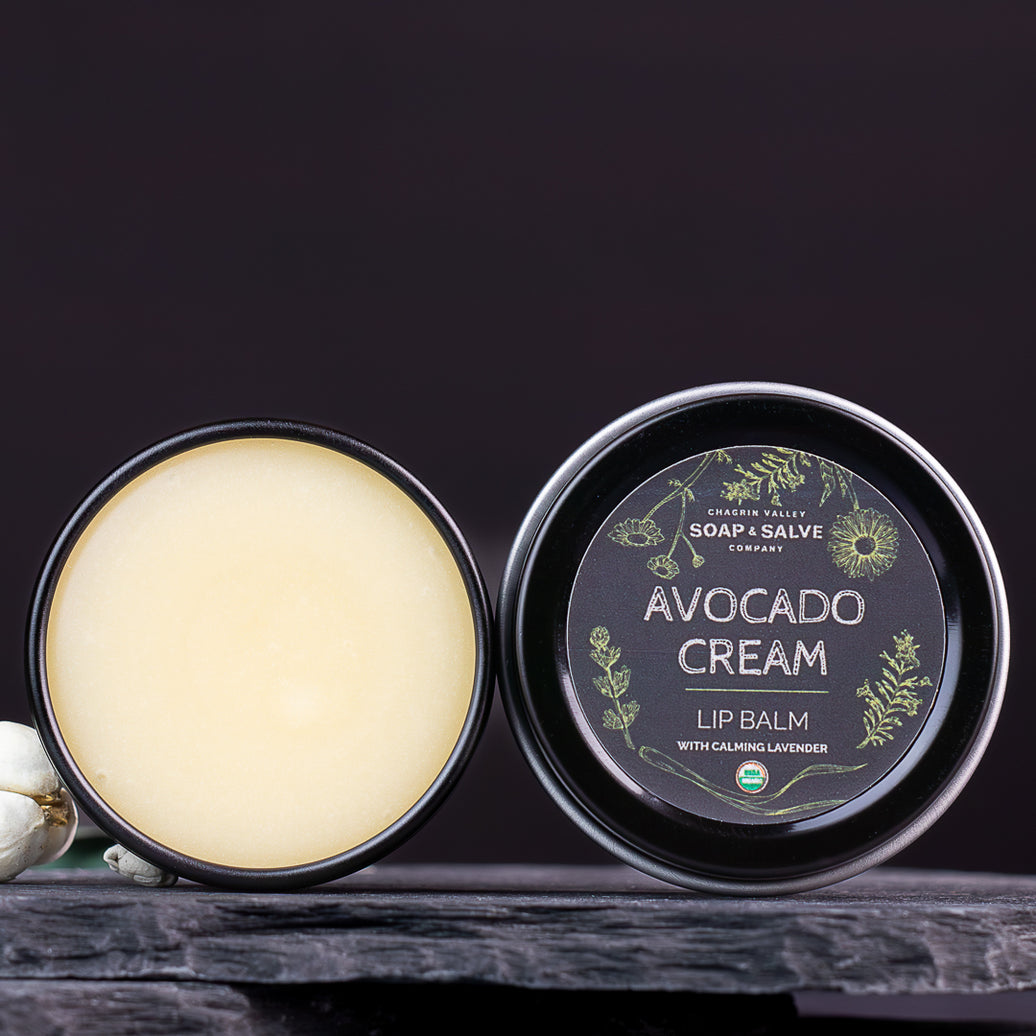
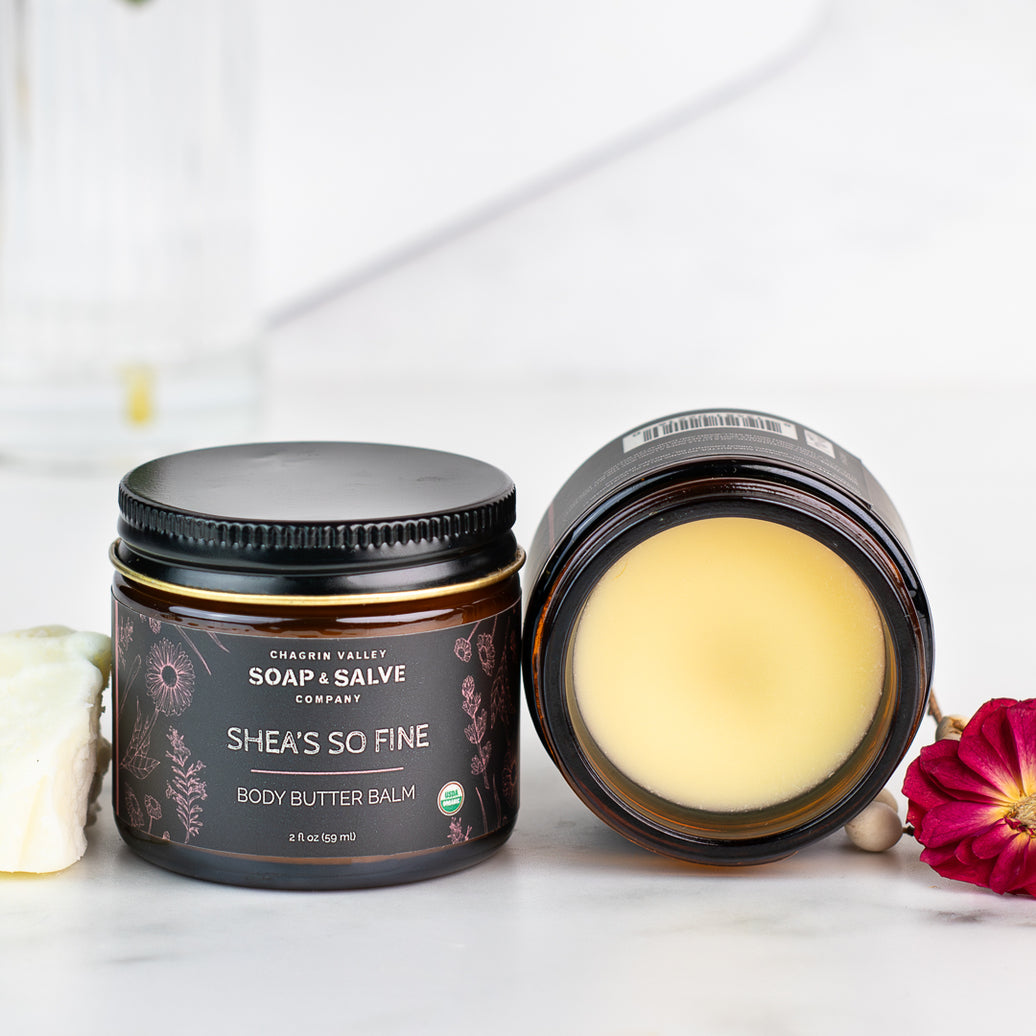
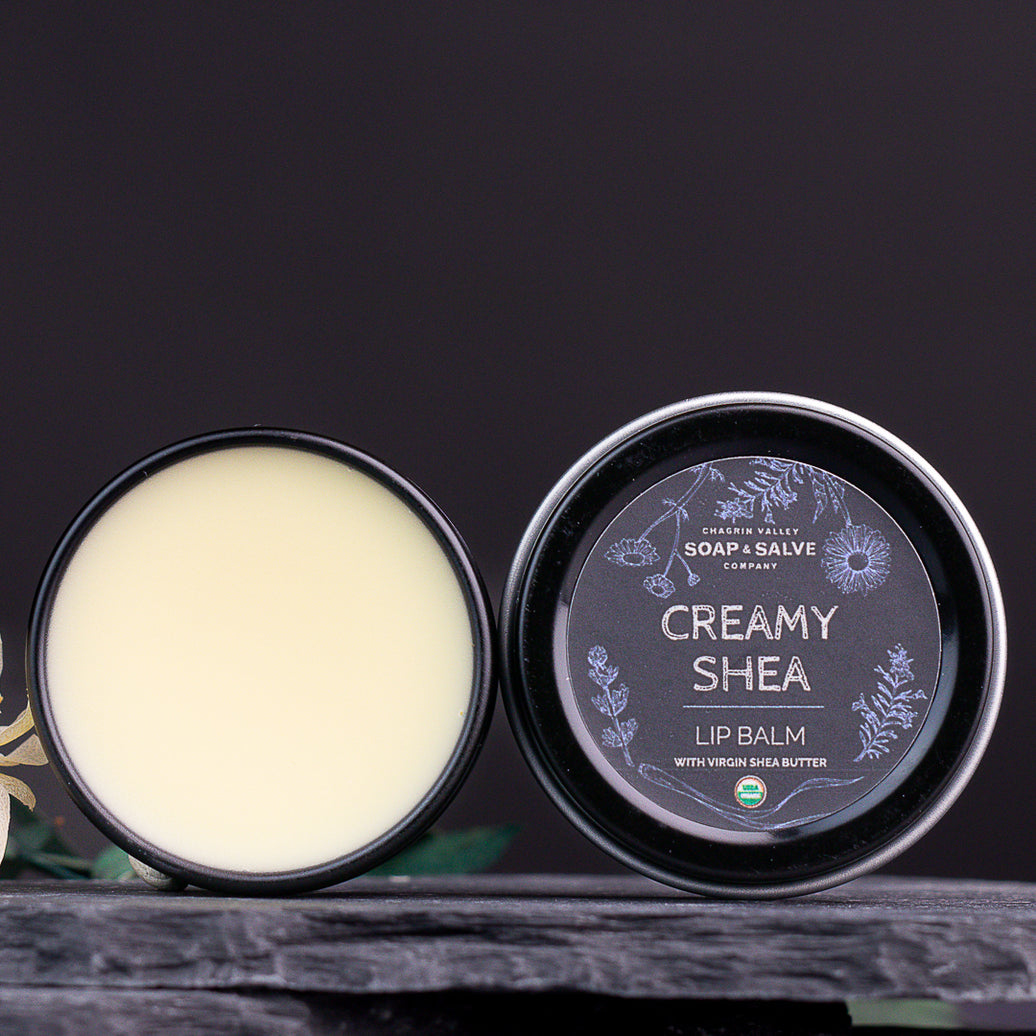
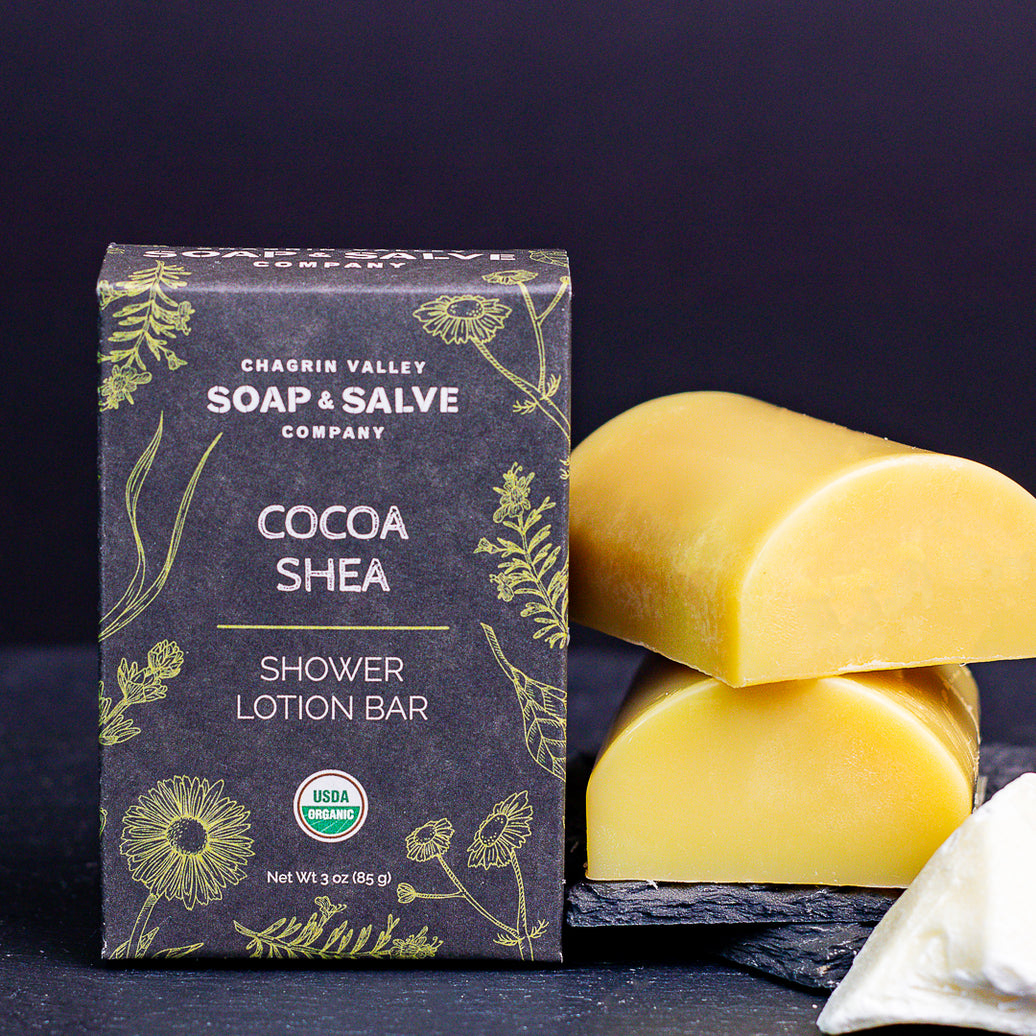
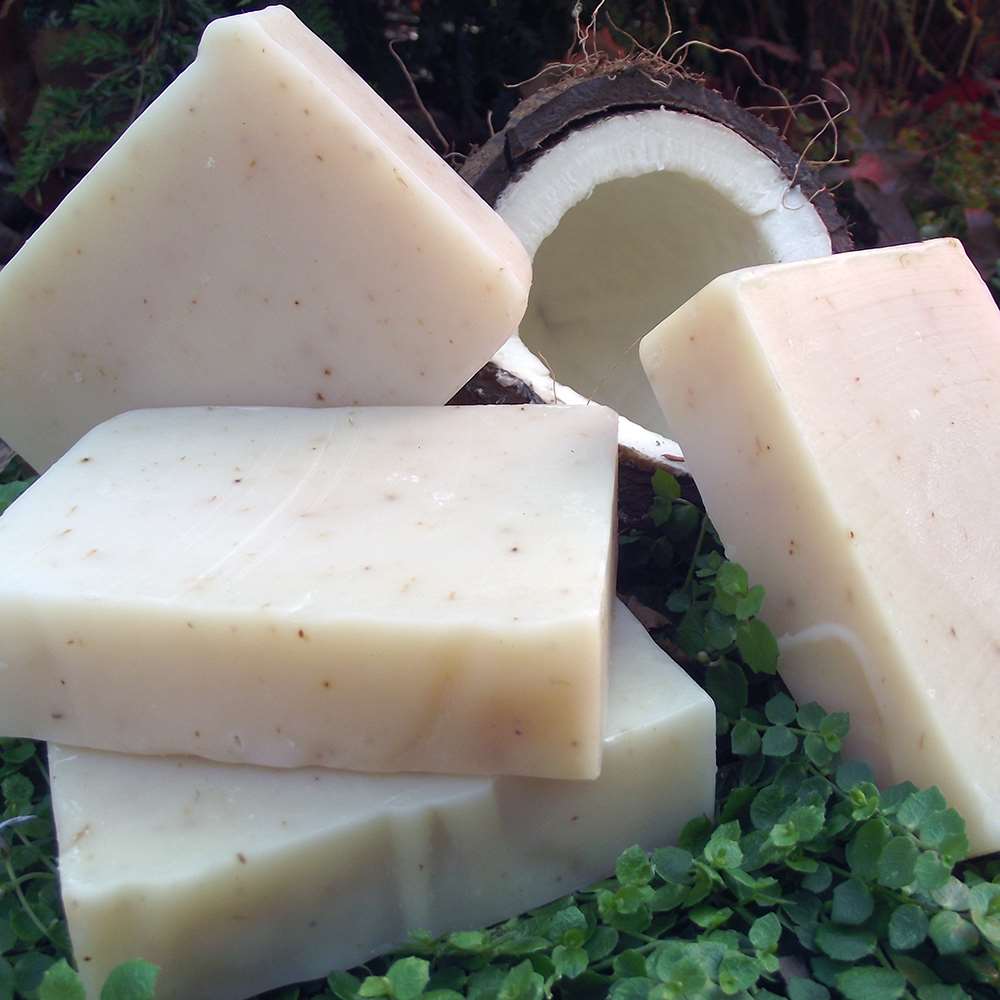
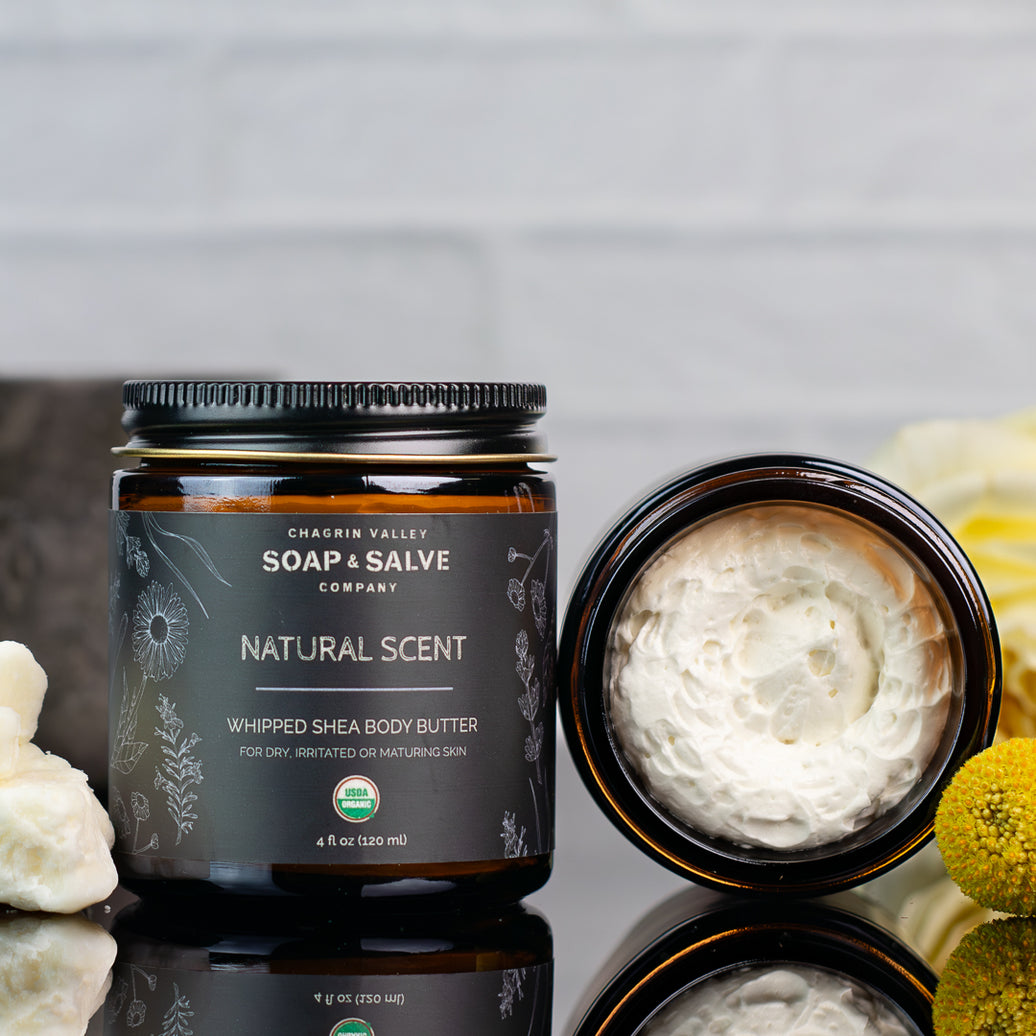
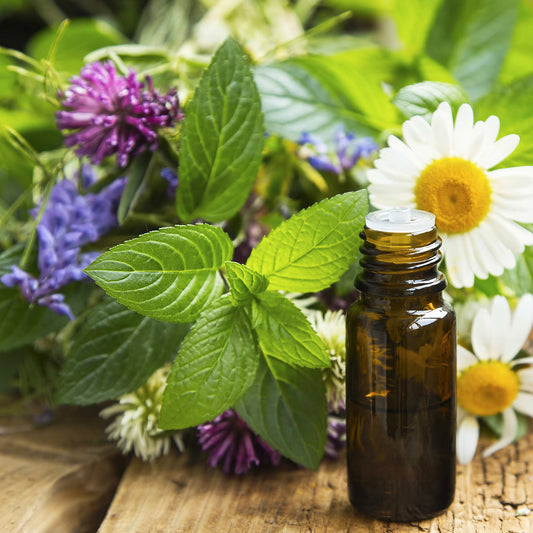
The synergistic composition of essential oils cannot be recreated in a laboratory. Fragrance oils do not offer the natural therapeutic advantages of true essential oils.
Read Post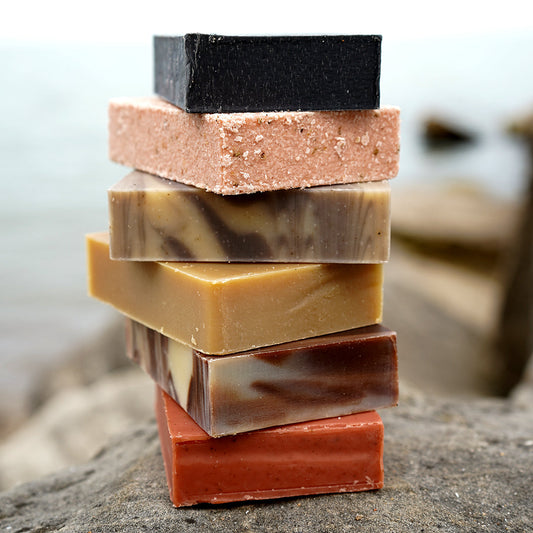
Saying a soap is "handmade" says nothing about the quality of the ingredients or the knowledge and skill of the soap maker! Discover the differences.
Read Post
Help Me Choose a Natural Soap: Your skin type is unique to you! We have compiled natural soap recommendations based on information gathered from friends, family, and customers. We hope this will help you make your choices based on skin care needs and sensitivities.
Read Post